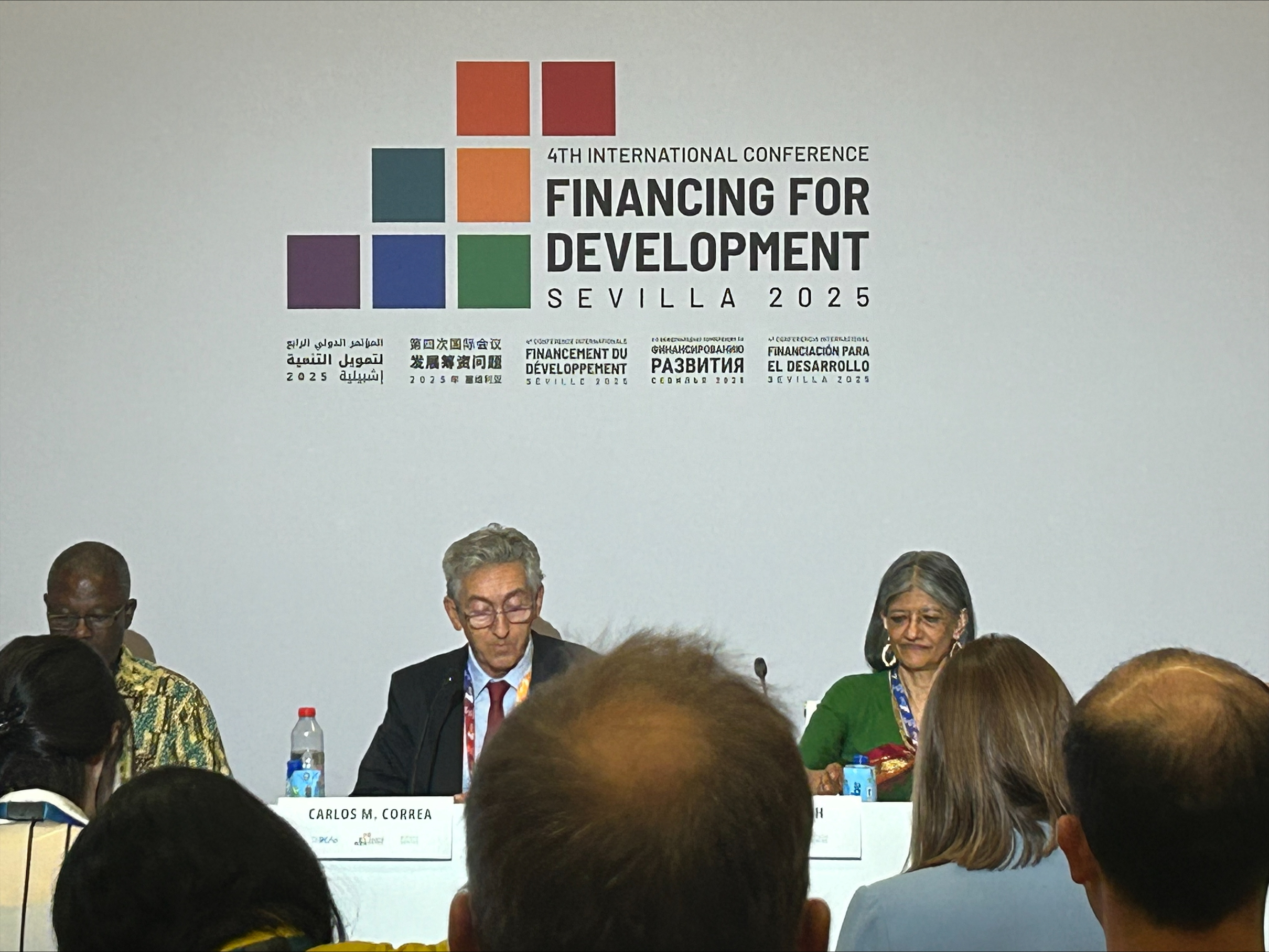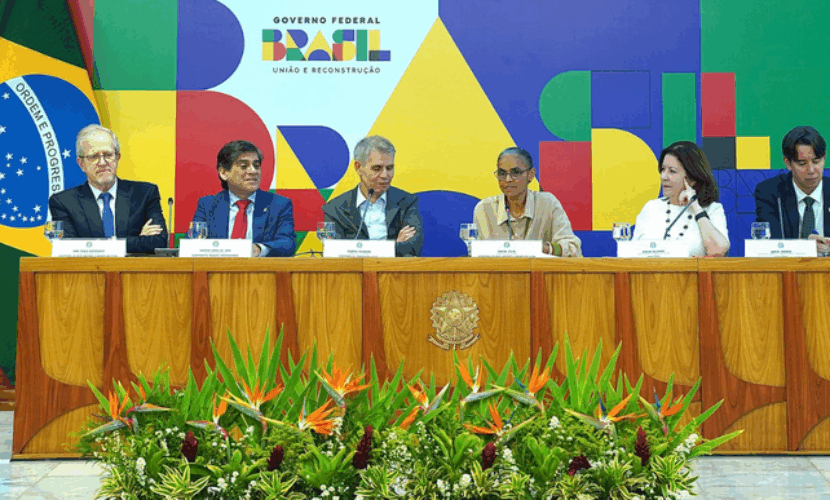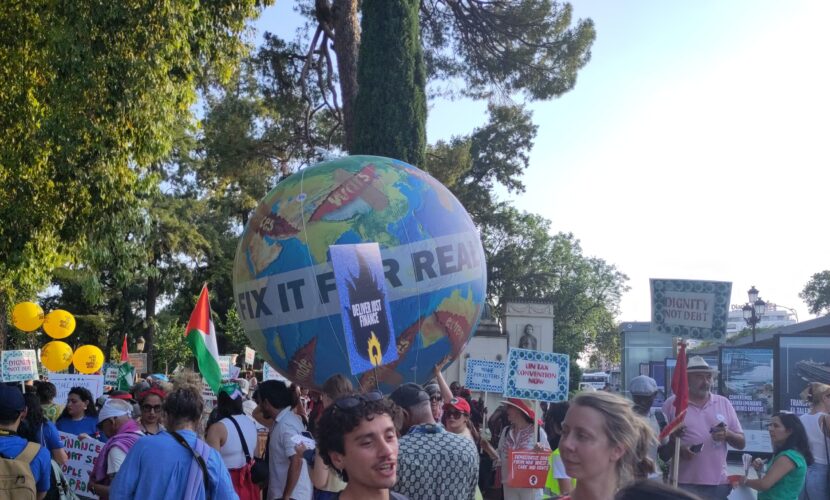最新記事&分析
A Modest Proposal to Prevent Tropical Deforestation: Tax the Billionaires (and the corporations they own)

“All around the world, the rich pay less taxes than the poor,” said Dareje Alemayahu, Executive Coordinator of the Global Alliance for Tax Justice, speaking at the Fourth International Conference on Financing for Development (FFD4) in Seville, Spain, this week.
“Today we have debt being paid from south to north – this is wealth from our countries being transferred to the north. This wealth needs to be taxed. We have an opportunity in the next few years to advance some very important initiatives in the UN, and the UN Framework Convention on International Tax Cooperation is one of them.”
According to the Tax Justice Network, every year some $492 billion in corporate profits and personal wealth is stashed in tax havens – countries with low or no tax rates – diverting funds that could, and should, be put to use for health, education and social spending, as well as biodiversity, Indigenous land tenure and ecological restoration. The black-box privacy laws in most tax havens, which leads some to refer to them as “secrecy jurisdictions,” shields business interests from accountability and obscures their impacts on both the real economy and the planet, while draining the public purse. Forest-rich countries suffer direct impacts, as they lose huge sources of revenue from logging and agricultural production to tax avoidance and often illicit activities – activities which, themselves, may often contribute to deforestation and forest degradation.
Here in the meeting rooms and plenaries of the FFD4 summit, a term you hear tossed around with abandon is “the finance gap” – that is, the shortage of money needed to meet the UN Sustainable Development Goals, or to provide finance for climate mitigation and adaption, or to halt and reverse biodiversity loss. Regrettably, the dominant narrative aggressively pushed by everyone from Wall Street to the World Bank, is that this gap can only be filled by “crowding in private finance.” Entities like the UN Capital Development Fund make the case with blind faith, resuscitating the infamous doctrine of Margaret Thatcher that There Is No Alternative: “As official development assistance shrinks and the financing gap widens, the world needs bold, catalytic approaches to deliver impact at scale.” For those unaccustomed to interpreting the subtle rhetoric of big finance, allow me to translate: decades of deregulation, corporate concentration, financialization and tax avoidance have bled governments dry, so the only solution – so says the financial sector – is to turn to investment finance, commercial lending, and a vast array of private finance instruments, all designed to generate returns for the financiers and continue the cycle of global impoverishment.
Friends, don’t let the banksters fool you. Countering the prevailing wisdom, no less an economic luminary than Jeffrey Sachs said at the start of the FFD4, “No country has built a skilled population or infrastructure with private investment. We need public investment.”
And public investment depends on taxes. Hence the need to address the so-called finance gap with a UN-led overhaul of the global tax system.
Of course, these are not only problems of North-South equity, but, acutely, problems within countries. Billionaires in the US pay a tiny proportion of wealth in taxes compared to the cut ordinary Americans pay from their wages. The sitting President relentlessly refuses to release his tax returns, and the former President’s proposal for a 25 percent tax on all wealth over $100 million is quickly receding into the past as the country descends into autocracy run by and for the oligarchs.
When oligarchs in the US or the EU build their wealth by extracting resources elsewhere – by and large from the resource-rich ecosystems and cheap labor of the global South – the problem demands a global response. Unsurprisingly, the US in particular fought to water down the UN Tax Convention, and then ditched the process altogether – a development some see as a positive.
“When it comes to multilateral agreements, the slogan of the U.S. is, ‘America last,’” said Alemayahu of the Global Alliance for Tax Justice: “When the US walked out of the UN Tax Convention we breathed a sigh of relief. The fact that they’re not in the room watering down the text allows us to get the agreement we need, and then the US will have to follow the rules if they want to do business with the world.”
Globally, it has always been a rigged game, as Luke Holland of the Tax Justice Network notes, putting the issue in historical context: “The existing system of international tax cooperation was set up as European empires retreated, as a means to continue the economic extraction of the Global South, and that’s exactly what it has continued to do to this day.”
“Its not by coincidence that the super-rich pay less taxes,” says Nathalie Beghin of the Latin American Network for Economic, Social and Climate Justice. “Its that they control and shape the institutions. So how do we change this dynamic? We expose and show the absurdity of this system.”
Everlyn Muendo of the Africa Tax Justice Network puts the issue in the African context: “For so long we thought it was corruption that was bleeding our continent of funds, but when we looked at the global tax rules, we realized we are losing far more in taxes to global interests than through corruption. The continent loses $89 billion annually due to unfair tax rules. We realize that we cannot raise the funds we need for our own development if we don’t transform the international tax system. We need the legal right to tax multinational corporations as well as high net worth individuals.”
Jeannie Manipon, of the Asian Peoples Movement on Debt and Development, elaborates, “Instead of taxing its billionaires, many of our governments shift the burden to ordinary people, which we know hits women and marginalized people the most. These impacts on our most vulnerable populations are colonial legacies that demand reform. But reforms of domestic tax systems is not enough: overhaul of the global tax system through an international tax convention is an urgent necessity, especially for the peoples of the global south.”
“What’s really important to remember, however, is that this isn’t just about lost revenue,” says the Tax Justice Network’s Luke Holland. “The international financial system that enables these huge sums of lost revenue is characterized by pervasive opacity, and this financial secrecy makes it impossible to hold to account the corporations and rich individuals who are most responsible for so much of the ecosystem and biodiversity collapse we are witnessing. The tax abuse money runs on the same system of financial secrecy that enables criminality and corruption. What we need is a revolution in both tax cooperation and financial transparency.”
Among development justice advocates there is hope that the UN Tax Convention, officially put on the table in 2024 and set to enter the drafting phase later this year, can withstand the assault by the over-developed nations and transform the tax system to allow governments to deliver on their commitments on everything from gender and human rights to climate and health.
“The Convention process gives us that opportunity, but it is just an opportunity for now,” says Holland, who has been on the frontlines of advocating for the Convention at the UN. “The European Union, the UK, and a handful of other rich countries are working hard to weaken it and maintain the status quo. That’s a status quo that the planet can’t afford, and that humanity can’t afford.”
And so, may we humbly propose that along with the many other means at our disposal to halt and reverse deforestation – and so many other global ills – we add one more tool to the toolbox of solutions: to save the forests, tax the oligarchs.









